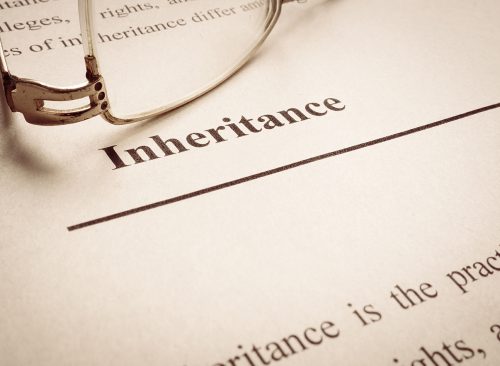8 Things to Worry About as Boomers Transfer Their Wealth to Younger Generations
The harsh reality of inheritance disappointment.

It's being called the greatest transfer of wealth in history—baby boomers (people born from 1946 to 1964) hold half of the country's $140 trillion in personal wealth, and they're dying in increasing numbers. The boomer generation will leave $84 trillion to their heirs by 2045 and $16 trillion in the next decade. But that transfer may not go smoothly, and some prospective heirs may find themselves disappointed or out in the cold. Here are key things to worry about as boomers transfer their wealth to younger generations.

In the Great Wealth Transfer, "the top 10% of households will be giving and receiving a majority of the wealth," the New York Times reports. Those in lower income brackets have considerably less, and perhaps not much, to pass along to younger generations.

According to a recent survey by Alliant Credit Union, 52% of millennials who are expecting to receive an inheritance from an older family member said they expect to receive at least $350,000. But 55% of baby boomers who plan to leave an inheritance said it will be less than $250,000.

According to a July survey by New York Life, only 42% of adults feel "very comfortable" handling their expected inheritance, and 58% say inflation will have a medium-to-large impact on the amount they receive.

According to a recent Census Bureau report, almost 42% of baby boomers have no retirement savings whatsoever. A recent Axios-Iposos poll found that two-thirds of Americans age 55 and older plan to delay their retirement, and 70% say they believe they won't be able to afford to retire at all.

Life expectancy increased from 68 years in 1950 to about 76 years in 2021. With that increase in lifespan comes an increase in conditions associated with aging, such as Alzheimer's disease, which can come with high healthcare costs. "Medicare doesn't cover most long-term care, and seniors only become eligible for care through Medicaid when they have almost no assets left," reports Vox. "Paying for professional care out of pocket can be ruinously expensive." Long-living boomers may have to liquidate assets or draw down their savings to pay those costs, leaving less behind for their heirs.

According to a recent report by Edelman Financial Engines, only 37% of parents said they have a plan for transferring their wealth.

"For millennials, inheritance tax will eat a huge chunk of their payout," Forbes warns.

Boomer parents may feel less inclined to pass on significant amounts of money than previous generations, Susan Hirshman, director of wealth management at Schwab Wealth Advisory in Phoenix, told CNBC. "The mentality is, 'I earned this and so should you.'"














